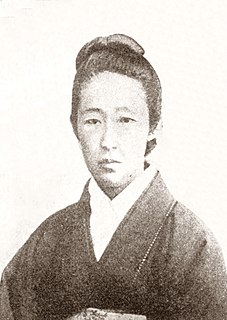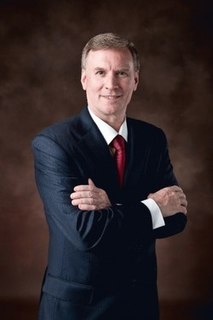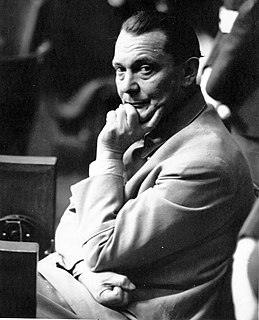A Quote by Henry A. Kissinger
Statesmen think in terms of history and view society as an organism. Prophets are different since they believe absolute aims can be achieved in the foreseeable future. More people have been killed by crusaders than by statesmen.
Related Quotes
The 'black armband' view of our history reflects a belief that most Australian history since 1788 has been little more than a disgraceful story of imperialism, exploitation, racism, sexism and other forms of discrimination. I take a very different view. I believe that the balance sheet of our history is one of heroic achievement and that we have achieved much more as a nation of which we can be proud of than which we should be ashamed.
We know that words cannot move mountains, but they can move the multitude; and men are more ready to fight and die for a word than for anything else. Words shape thought, stir feeling, and beget action; they kill and revive, corrupt and cure. The "men-of-words"- priests, prophets, intellectuals- have played a more decisive role in history than military leaders, statesmen, and businessmen.
There have been many men who left behind them that which hundreds of years have not worn out. The earth has Socrates and Plato to this day. The world is richer yet by Moses and the old prophets than by the wisest statesmen. We are indebted to the past. We stand in the greatness of ages that are gone rather than in that of our own. But of how many of us shall it be said that, being dead, we yet speak?
Americans, more than most people, believe that history is the result of individual decisions to implement conscious intentions. For Americans, more than most people, history has been that.... This sense of openness, of possibility and autonomy, has been a national asset as precious as the topsoil of the Middle West. But like topsoil, it is subject to erosion; it requires tending. And it is not bad for Americans to come to terms with the fact that for them too, history is a story of inertia and the unforeseen.































